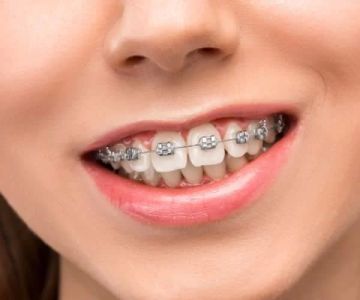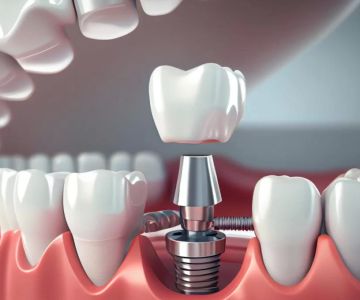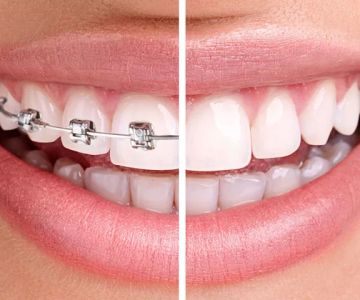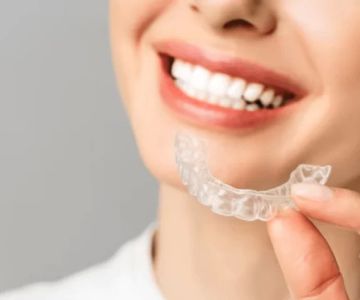
How to Avoid Tooth Sensitivity After Whitening Treatment: Expert Tips and Remedies
- Understanding Tooth Sensitivity After Whitening Treatment
- Why Whitening Treatment Causes Tooth Sensitivity
- Top Tips to Avoid Tooth Sensitivity After Whitening
- Remedies for Tooth Sensitivity Post-Whitening
- When to Consult a Dentist About Sensitivity After Whitening
- How to Care for Your Teeth After Whitening Treatment
Understanding Tooth Sensitivity After Whitening Treatment
Tooth sensitivity after a whitening treatment is a common concern for many people. It's typically experienced as a sharp pain or discomfort when consuming hot, cold, or sweet foods and drinks. This sensitivity usually occurs because of the bleaching agents in whitening products, which can temporarily affect the enamel and nerves in the teeth.
Although tooth sensitivity after whitening can be uncomfortable, it is often temporary. Understanding the causes and taking proactive steps can help you minimize or even avoid this issue altogether. In this article, we’ll explore the reasons behind whitening-induced sensitivity and provide practical tips to manage it effectively.
Why Whitening Treatment Causes Tooth Sensitivity
The primary cause of tooth sensitivity after a whitening treatment is the bleaching agent, typically hydrogen peroxide or carbamide peroxide, which penetrates the enamel to break down stains. While this process effectively brightens your teeth, it can temporarily weaken the enamel or irritate the nerves inside the teeth, leading to discomfort.
People with already thin or weakened enamel are more likely to experience sensitivity, as their teeth are more susceptible to the effects of the bleaching agents. Additionally, overuse of whitening products can lead to more severe and lasting sensitivity, so it’s essential to follow professional guidance and product instructions carefully.
Top Tips to Avoid Tooth Sensitivity After Whitening
If you're concerned about tooth sensitivity after whitening treatment, follow these expert tips to minimize discomfort and protect your teeth:
1. Choose the Right Whitening Product
Not all whitening products are created equal. Some are more gentle on your teeth, while others are more intense. If you’re prone to sensitivity, opt for a whitening treatment that is specifically formulated for sensitive teeth. These products contain lower concentrations of bleaching agents and may include additional ingredients to help protect your enamel.
2. Use a Soft-Bristled Toothbrush
A hard toothbrush can exacerbate sensitivity by wearing down your enamel, especially after whitening. Switching to a soft-bristled toothbrush will help you gently clean your teeth without causing further damage. Brushing too aggressively can also irritate your gums, which can contribute to overall tooth sensitivity.
3. Avoid Acidic Foods and Beverages
After whitening, your enamel may be temporarily softened, making it more susceptible to damage from acidic foods and beverages like citrus fruits, soda, and coffee. It’s best to avoid these items for at least 24 hours after a whitening treatment to allow your teeth to re-mineralize and harden back to their normal state.
4. Limit Use of Whitening Products
Overuse of whitening treatments can lead to long-term sensitivity. If you’ve recently undergone a whitening treatment, it’s essential to give your teeth a break before using any more whitening products. If you want to maintain a bright smile, consider scheduling whitening sessions a few months apart, rather than using products daily or weekly.
5. Consider Professional Whitening
While at-home whitening kits can be effective, they often contain higher concentrations of bleaching agents that can contribute to sensitivity. Professional whitening treatments performed by a dentist are usually gentler on your teeth because they use controlled amounts of whitening agents and take precautions to minimize sensitivity.
Remedies for Tooth Sensitivity Post-Whitening
If you experience tooth sensitivity after whitening, there are several remedies that can help alleviate the discomfort:
1. Use Toothpaste for Sensitive Teeth
Sensitive teeth toothpaste is formulated to reduce discomfort by blocking the transmission of pain signals to the nerves inside your teeth. These products typically contain potassium nitrate or strontium chloride, which help to soothe sensitive nerves and provide relief from whitening-induced discomfort.
2. Apply a Desensitizing Gel
Many dental professionals recommend applying a desensitizing gel after a whitening treatment. These gels contain fluoride and other soothing ingredients that can help re-mineralize your enamel and reduce sensitivity. Some over-the-counter gels are available, but it's best to consult your dentist for personalized recommendations.
3. Try a Saltwater Rinse
A mild saltwater rinse can help reduce inflammation and soothe irritated gums and teeth after whitening. Mix a small amount of salt in warm water and swish it around your mouth for 30 seconds. This can help relieve mild sensitivity and promote healing of your gums.
When to Consult a Dentist About Sensitivity After Whitening
While mild tooth sensitivity after whitening is common, there are times when you should consult a dentist. If your sensitivity persists for more than a few days or becomes increasingly painful, it could be a sign of more severe damage to your enamel or other dental issues. It’s always a good idea to err on the side of caution and speak with your dentist if you have any concerns.
How to Care for Your Teeth After Whitening Treatment
To maintain your bright smile and keep your teeth healthy, proper aftercare is essential. After a whitening treatment, make sure to:
1. Avoid Staining Foods and Drinks
For at least 24 to 48 hours after whitening, avoid foods and beverages that can stain your teeth, such as red wine, coffee, and berries. This gives your teeth time to absorb minerals and re-strengthen their enamel.
2. Maintain a Regular Oral Care Routine
Brush your teeth at least twice a day with fluoride toothpaste and floss daily to keep your teeth clean and healthy. Make sure to use a toothpaste designed for sensitive teeth if needed.
3. Visit Your Dentist Regularly
Regular dental checkups are key to maintaining optimal oral health. Your dentist can monitor the condition of your teeth after whitening treatments and offer advice on how to keep your smile bright and healthy.







 Lake Minnetonka Orthodontics
Lake Minnetonka Orthodontics Dr. Joanne Kim Orthodontics
Dr. Joanne Kim Orthodontics Dr. Joe Gordon, DDS
Dr. Joe Gordon, DDS Tebo Orthodontics Cumming
Tebo Orthodontics Cumming Jonesboro Pediatric Dental Group
Jonesboro Pediatric Dental Group Los Coyotes Imaging Center: Le Hanh N DDS
Los Coyotes Imaging Center: Le Hanh N DDS The Importance of Oral Health Education During Pregnancy for a Healthy Pregnancy
The Importance of Oral Health Education During Pregnancy for a Healthy Pregnancy Why Skipping Dental Checkups Can Lead to Bigger Oral Health Problems
Why Skipping Dental Checkups Can Lead to Bigger Oral Health Problems Advantages of Porcelain Dental Restorations
Advantages of Porcelain Dental Restorations Best Tips for Brushing Your Teeth Properly for Healthy Gums: Essential Techniques for Oral Health
Best Tips for Brushing Your Teeth Properly for Healthy Gums: Essential Techniques for Oral Health How Can Diabetes Cause Tooth and Gum Problems? Preventing and Managing Oral Health Issues
How Can Diabetes Cause Tooth and Gum Problems? Preventing and Managing Oral Health Issues Healthy Habits for Promoting Good Oral Health and Hygiene: Tips for a Healthy Smile
Healthy Habits for Promoting Good Oral Health and Hygiene: Tips for a Healthy Smile